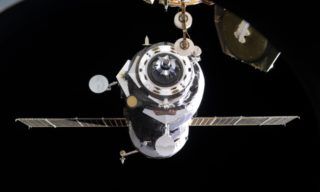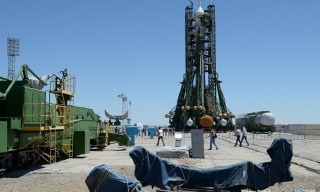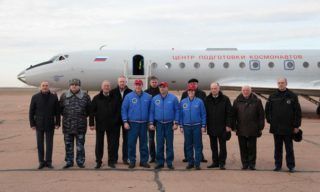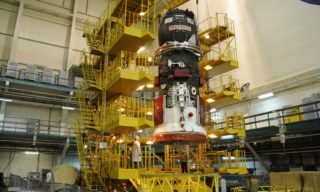The full name of the experiment is as follows “Determination of functional capabilities, physical working capacity level and state of main physiological systems of cosmonaut’s body short after the spaceflight”.
Main organization: Russian Academy of Science institute for Biomedical problems
Co-researchers: NASA Johnson Space Centre, Gagarin Cosmonaut Training Centre
The matter of increasing flight duration as well as interplanetary flights matter are widely discussed at the present time. At the same time we know that cosmonauts’ working capability dramatically reduces after long flight . Those functions affected by gravitation suffer the most e.g. vertical position of the body, walking, and due to the sensory systems disorder arising during the flight there are signs of motion disease. The severity of these signs differs but such of them as space orientation disorder and spatial motion construction disturbance are to be clearly seen.
Unfortunately the data available at the moment is of descriptive character that’s why it is quite difficult to summarize and use to predict ergonomic situation in case the spacecraft lands at any other space object. There is no data on time dynamics, recovery processes in separate systems thus it is difficult to simulate the activities after landing to develop any preventive means and methods. In 50 years there were no systematic researches conducted on this matter while video data on moon walking and performing working operations on the Moon available now does not give any positive information.
Together with American researchers Russian Institute for Biomedical Problems developed the program of new experiment. This program includes registration of simple base motions characteristics such as rising from the chair or floor, walking along the flat surface, stepping over the obstacles, etc. as well as vertical stability and orthostatic reaction characteristics. All these tests have to be conducted at different time after landing, with the first one being performed directly in rescue tent at that.
The experiment is aimed to detect sensomotor and vascular functions disorder with the help of informative and simple tests that may be conducted by crew’s doctors or crew members themselves after the landing, to determine studied functions recovery dynamics, determine all risks and functional capabilities involved and optimize rehabilitation process.
The results of the experiment will enable:
-to determine the peculiarities of sensomotor and vascular systems functioning short after the landing;
– to assess the dynamics of functional working capability recovery which is of great importance for interplanetary flights preparation;
– to assess the prevention systems used by cosmonauts/astronauts;
In September 2013 such experiment was successfully carried out with two members of ISS-35/36 crew.



















